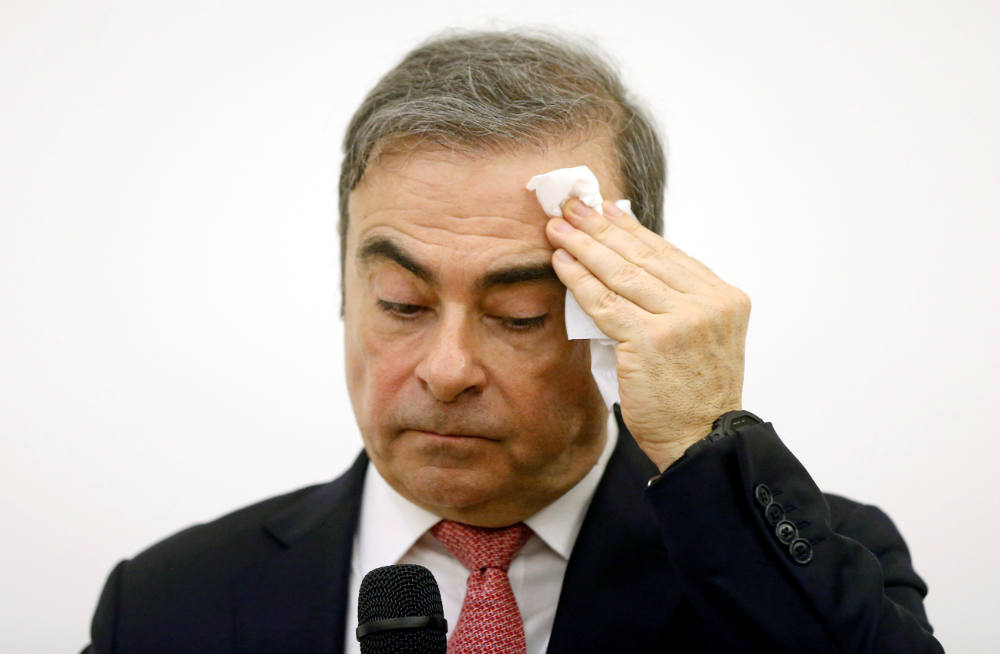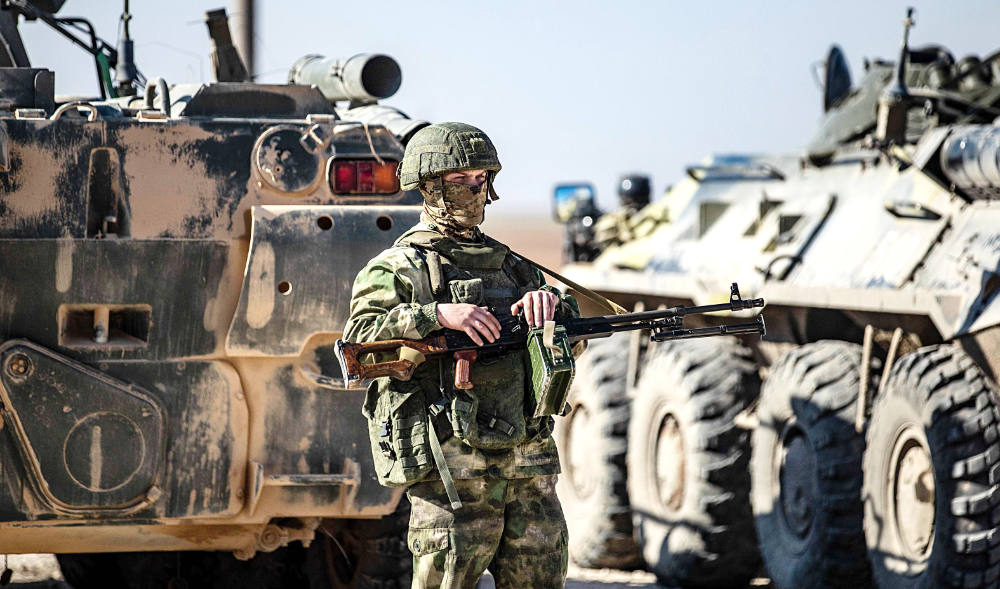Lebanon unlikely to comply with Interpol request to hand Carlos Ghosn over to French authorities
BEIRUT: Lebanon has received an Interpol red notice for the arrest of businessman Carlos Ghosn at France’s request but is unlikely to extradite him, according to a judicial source.
The 68-year-old car industry tycoon, who holds French, Lebanese and Brazilian citizenship, fled to Lebanon in December 2019 while awaiting trial in Japan. He had been under house arrest since 2018.
The Lebanese judiciary received the notice on Thursday. It is based on an international arrest warrant issued by the French authorities about a month ago.
A judicial source told Arab News that Lebanon’s prosecutor general, Judge Ghassan Oueidat, received the warrant based on hearings held by a delegation of French judges who visited Lebanon for the first time in June 2021. They listened to Ghosn over the course of four days in regard to a lawsuit filed against him in Paris.
BACKGROUND
The former head of the Nissan-Renault alliance fled to Lebanon in 2019, while out on bail facing financial misconduct charges in Japan.
Ghosn was chairman of Nissan and Mitsubishi and CEO of Renault when he was arrested in 2018 on charges of “not disclosing his full wages and using company funds for personal purposes.”
France accuses him of being responsible for “over €15 million ($15.8 million) in suspicious payments between his Renault-Nissan alliance and activities Ghosn held at the opulent Palace of Versailles, including knowingly using company resources to host a party for personal purposes.”
The source added that Judge Oueidat was expected to refer the Interpol notice to the discriminatory attorney general, Judge Imad Qabalan, who attended the hearings of the French judicial delegation with Ghosn.
Based on the notice, Judge Qabalan may interrogate Ghosn and decide whether he should be arrested, the source said.
“If Judge Qabalan finds Ghosn guilty of any crime, he can request his full file from the French authorities and try him in Lebanon under the Lebanese Penal Code,” the person added.
“In the event that the crimes charged against Ghosn are not mentioned in the penal code, or if they are charges that the Lebanese penal code does not criminalize, he will leave him be.”
The source said that although Lebanon and France had an extradition treaty, Ghosn would be prosecuted in Lebanon as he had Lebanese nationality, adding that Lebanon had banned the executive from traveling.
Lebanon confiscated Ghosn’s passports in 2020 and he has not submitted a request to get them back.
The tycoon made his escape from Japan by hiding in luggage on a private plane that took off from Kansai International Airport. He has been in Lebanon ever since and has repeatedly denied any wrongdoing.
An American father and son helped Ghosn flee Japan. The US handed them over to Japanese authorities and they confessed in a Tokyo court that they had been paid $1.3 million to do so. They face a prison sentence of up to three years.
Meanwhile, Lebanese judicial authorities on Thursday released 72-year-old Ziad Taqi Al-Din, whose name had been linked to lawsuits related to charges of fraud and forgery filed in Paris against former French President Nicolas Sarkozy.
Taqi Al-Din, who has dual Lebanese and French nationality, was arrested in Beirut in 2020 based on an international arrest warrant issued by Interpol. He was later released on bond with a travel ban and his passport was confiscated.
The Lebanese judiciary requested his file from Paris for trial in Beirut, refusing to hand him over to the French judiciary.

Former Nissan boss Carlos Ghosn: ‘Am I guilty or innocent? Let’s finish this ordeal’France issues international arrest warrant for former Nissan boss Carlos Ghosn



